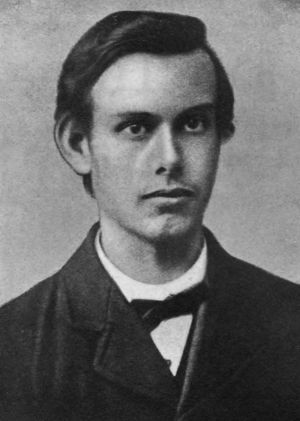Opium addict and derelict: The extraordinary life of Francis Thompson, Christian poet
A great Christian poet died today in 1907. His life was hard and his end came sadly too soon, but Francis Thompson is remembered for some of the greatest spiritual verse in the English language.
Born in 1859 in Preston, Lancashire, he was destined by his Catholic doctor father for the medical profession. He had neither the aptitude nor the interest, however, and after suffering a nervous breakdown ended up running away, penniless, to London.

While he had no interest in his father's profession, he had a passion for poetry and was a gifted writer. It was hard for him to support himself in this career, however, and he took odd jobs – working for a bootmaker and selling matches among them – in order to survive.
He became addicted to opium and lived rough on the streets of Charing Cross and the Embankment. He was rescued by the kindness of a prostitute, who he never identified but regarded as his 'saviour'.
He continued to write poetry and was 'discovered' by the poets and publishers Wilfred and Alice Meynell, who took him into their home and cared for him. Thompson became a well-known and respected poet, essayist and spiritual writer, but he never recovered from the hardships of his earlier years. He died at the age of 47.
While many of his poems are profoundly beautiful and insightful, two stand out. His most famous is The Hound of Heaven, which characterises God as a relentless tracker, hunting down his human quarry:
I fled Him, down the nights and down the days;
I fled Him, down the arches of the years;
I fled Him, down the labyrinthine ways
Of my own mind...
It is mesmerising in its depiction of the inexorable follower, revealed in the last lines to be eternal love. One of the great recordings is by Richard Burton.
The other for which he is particularly remembered is In No Strange Land. It begins:
O world invisible, we view thee,
O world intangible, we touch thee...
Its theme is a favourite of Thompson's – that God is in all things and always nearer than we think. It's full of extraordinarily arresting images:
The angels keep their ancient places –
Turn but a stone and start a wing!
The angels are still there; we are the ones who are blind:
'Tis ye, 'tis your estrangèd faces,
That miss the many-splendoured thing.
And his pictures of 'the traffic of Jacob's ladder/ Pitched between heaven and Charing Cross' and of 'Christ walking on the water/ Not of Gennesareth, but Thames' hark straight back to his experiences of God's presence in his destitution.
Francis Thompson was a troubled soul who found his calling after many trials. His vision still blesses us today.











